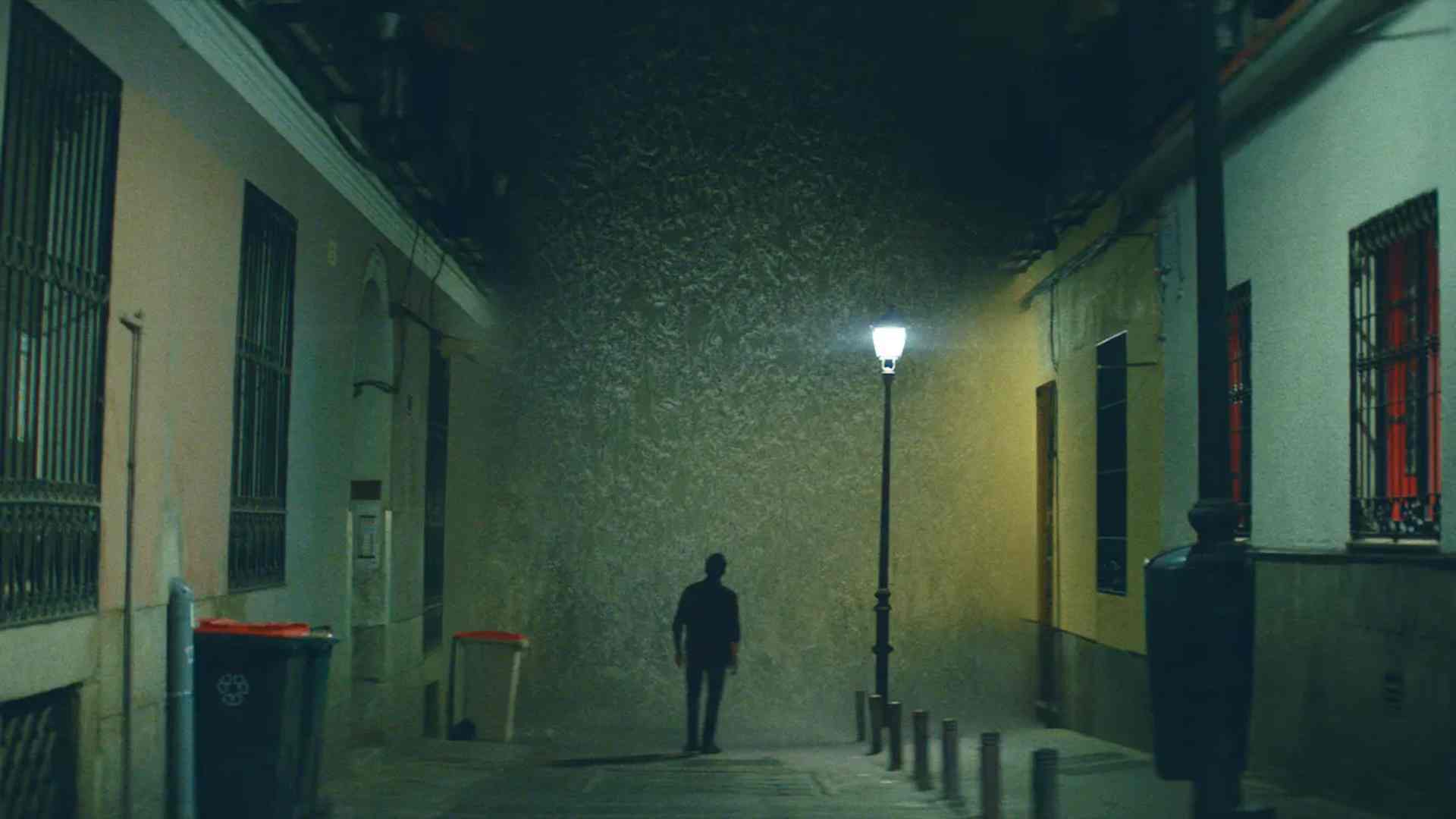Nacho Vigalondo retreats to an unimaginative dream world for Daniela Forever
The Colossal filmmaker projects his metaphors (and Henry Golding) inward to deal with unconfronted grief.
Photo: Filmax
There’s a darker, more discomfiting film lurking at the fuzzy edges of Daniela Forever, writer-director Nacho Vigalondo’s sci-fi-ish drama about the unfinished business of grief. Mourning the death of his girlfriend, a DJ named Nick (Henry Golding) is introduced by an old friend to a secret, experimental therapy program that promises a miracle cure for trauma and depression. It seems that some mysterious Belgian pharmaceutical company has developed a drug that induces lucid dreams, giving the sleeper potentially limitless access to their memories—provided, of course, that they stick to the text prompts supplied by the program. Nick quickly signs off on some threatening-sounding legal paperwork, collects his blister pack of magic pills, and, in tried-and-true cautionary-tale fashion, sets about disregarding the instructions he’s been given, feeding the stern-looking company doctors stories about the childhood memories he’s supposedly working through while he spends his nights in the dream world with his dead love, Daniela (Beatrice Grannò).
In Vigalondo’s earlier Colossal, a writer’s alcoholic self-loathing was manifested as a giant monster rampaging Godzilla-style through a city on the other side of the world. Here, the metaphors and projections are directed inward. A gimmicky formal boundary is drawn between Nick’s waking life and the dream world: The former is shot in 4:3 aspect ratio in a washed-out, grainy format that taps the current vogue for vintage prosumer video aesthetics, while the latter is lensed in crisp, saturated widescreen.
 Keep scrolling for more great stories.
Keep scrolling for more great stories.
